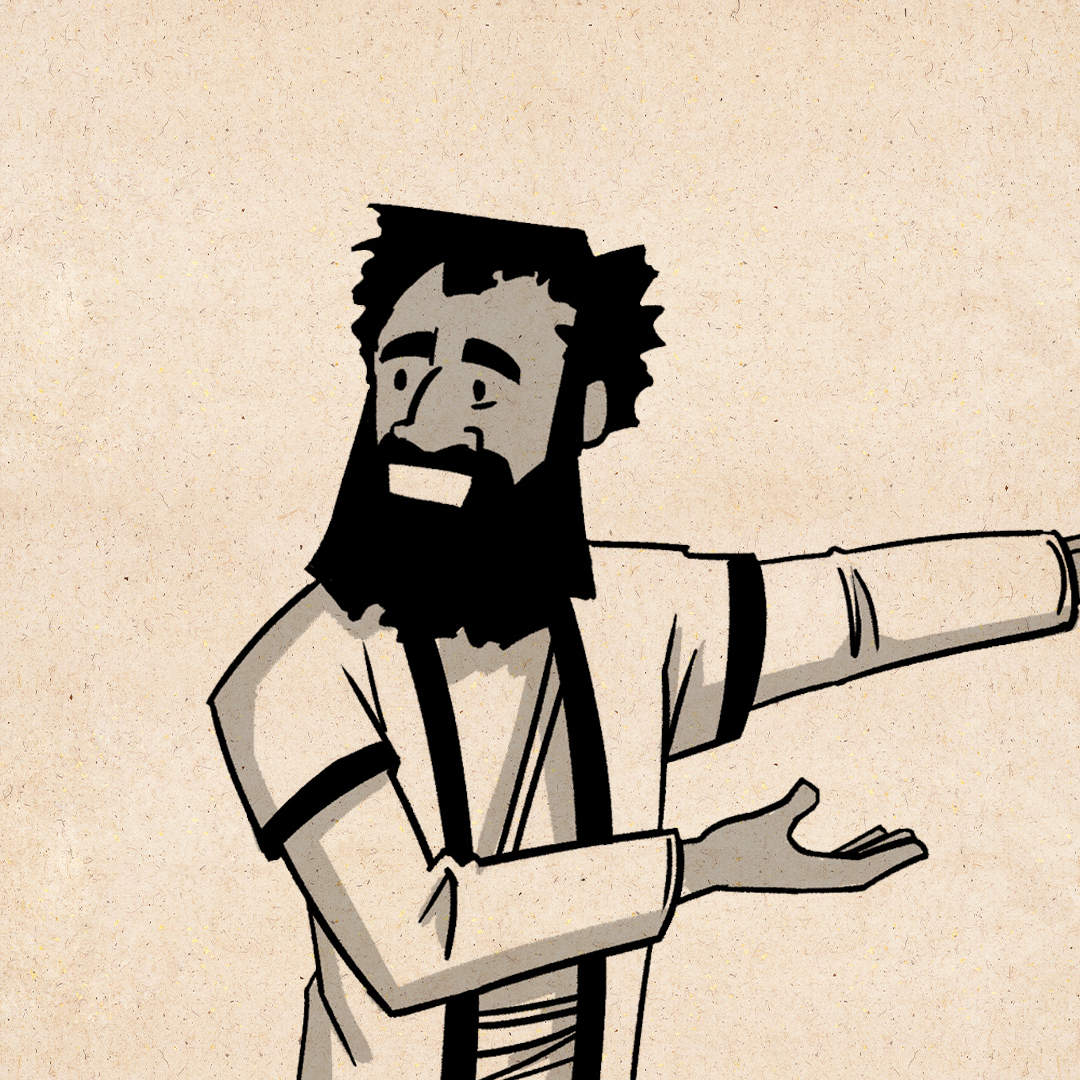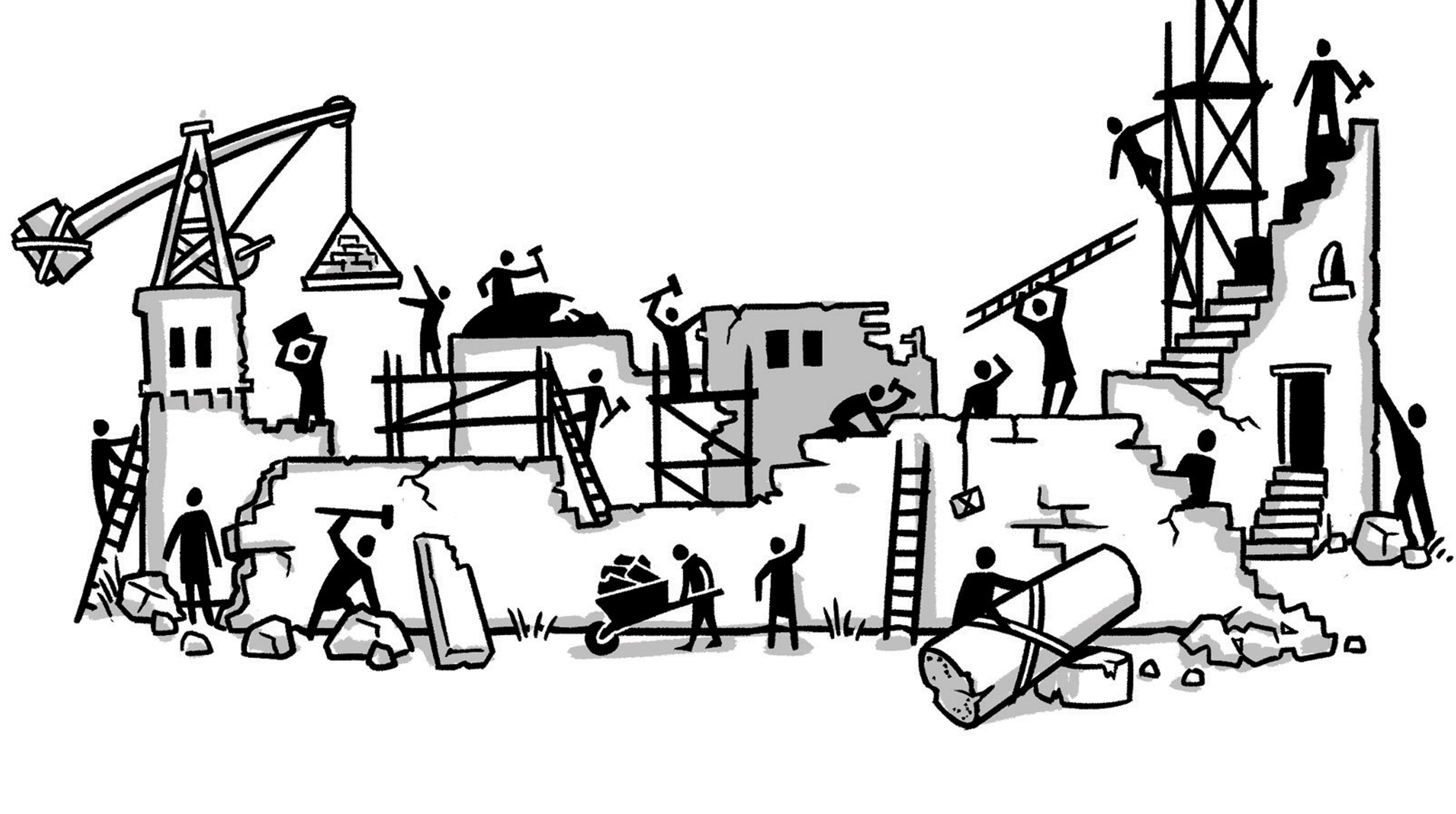BibleProject Guides
Guide to the Book of Haggai
About
One important aspect of the ancient TaNaK order of the Hebrew Bible is that the 12 prophetic works of Hosea through Malachi, sometimes referred to as the Minor Prophets, were designed as a single book called The Twelve. Haggai is the 10th book of The Twelve.
While Haggai is one of the smaller prophetic books in the Bible, it is crucially important in the overall story of the Hebrew Bible. For centuries, the Hebrew prophets had been accusing Israel of breaking their covenant with God through idolatry and injustice. They warned that God would send the great empire of Babylon to take out Jerusalem, destroy the temple, and haul the people off into exile. And this is what happened in the year 587 B.C.E. (2 Kgs. 24-25), but it wasn’t the end of the story. The prophets had a deep conviction that God would bring back a transformed remnant of Israel to live in a new Jerusalem, where God's Presence would live in their midst.
When we turn to Haggai, the date is 520 B.C.E., nearly 70 years after the exile. Babylon’s empire has recently collapsed, and the world is now ruled by the Persians, who allowed the return of any exiled Israelites who wanted to go back to Jerusalem. Under the leadership of a high priest named Joshua and Zerubbabel, an heir from the line of David, a group of exiles returned and began to rebuild the city and their lives (Ezra 1-6). So you can imagine that the people’s hopes are high and the future seems bright! But not from Haggai’s point of view.

Haggai 1:1-15: Exhortation to Rebuild the Temple
The book of Haggai consists of four sections that summarize Haggai’s message given to the people of Jerusalem over the course of four months. He opens in chapter 1 by accusing the people of misplaced priorities. Sure, they’ve come back to Jerusalem, but they’re spending all their time and resources rebuilding their own fancy houses while the temple still lies in ruins from its destruction nearly 70 years ago. Haggai asks, “Are your own houses really more important than your allegiance to God?” (Hag. 1:4). This neglect is tantamount to the covenant rebellion of their ancestors. This is why the land is unproductive and they’re struck with famine and drought. They are repeating the folly of their forefathers, which is why Haggai echoes the list of covenant curses from Deuteronomy 28:22-40. Haggai’s words are followed by a story about the people's response, similar to Ezra 5:1-2. We’re told that Zerubbabel, Joshua, and the remnant of Israel were provoked by Haggai’s message and were motivated to start rebuilding the temple.

Who Wrote the Book of Haggai?
The book of Haggai is seen as a collection of messages given by Haggai throughout his prophetic life. However, the author is not explicitly stated within the book.
Context
The events described in Haggai take place 70 years after the exile (520 B.C.E.) when Perisa had conquered the Babylonians.
Literary Styles
Haggai contains mostly poetry, along with some prose discourse.
Key Themes
- God’s call to covenant faithfulness
- Israel’s choice between life and death
- Anticipation of the messianic king
Structure
Haggai is divided into four parts. Haggai 1:1-15 motivates the remnant to rebuild the temple. 2:1-9 recalls the prophetic promise of the future Kingdom. 2:1-19 calls Israel to faithfulness and obedience. And 2:20-23 points toward the future Kingdom.
Haggai 2:1-9: Vision and Hope for the Rebuilt Temple
In the second section, Haggai follows up one month later and addresses a problem of shattered expectations among the people. The temple they are rebuilding is unimpressive. It’s nothing compared to the glory of the temple Solomon built some 500 years earlier. As you can imagine, morale was pretty low for finishing the project. Haggai reminds the people of the great prophetic promises of the future Kingdom of God and his temple. Here, he draws from earlier prophets, especially Isaiah and Micah, saying that the new Jerusalem will be the place from which God will redeem the world and that all nations will come and participate in God’s Kingdom, resulting in peace for all (Isa. 9, 60-62; Mic. 4-5). So the temple plays a key role in God’s plans for the future, and Haggai calls on the people to work in hope, despite the disappointing circumstances.
Haggai 2:10-19: Call to Covenant Faithfulness
In the third section, Haggai follows up two months later with a call to covenant faithfulness. Calling back to the key ideas from Leviticus, he engages some priests in a conversation about ritual purity. If someone touches a dead body and becomes ritually impure or marked by death and then goes to touch some food, does it become impure too? The priests say, “Yes.” Then Haggai turns this scenario into a parable. It’s the same with the people of Israel and what they’re putting their hands to as they rebuild the temple. If the current generation doesn’t humble themselves and turn from injustice and apathy, then whatever they build with their hands, including the new temple, will be impure.

In other words, it’s only by true repentance and covenant faithfulness that their building efforts will result in God bringing his Kingdom and blessing. So in one sense, their future is in their hands, and God is waiting for his people to be faithful. The choice that Haggai puts before the exiled generation is very similar to the challenge Moses gave to the wilderness generation before entering the land (Deut. 30). Their obedience will lead to blessing and success while faithlessness will lead to ruin.
Haggai 2:20-23: Future Hope and a Choice to Be Faithful
The book concludes with Haggai’s summary of the future hope in God’s Kingdom. God will make the new Jerusalem the center of his glorious international Kingdom. Just as he defeated Pharaoh long ago, God will again confront and defeat evil among the nations and fulfill his promise to David by establishing a king from his line, who, in Haggai’s day, was represented by Zerubbabel.
The book concludes with the choice of a bright future just hanging there. Will Haggai’s generation be faithful to God and experience the fulfillment of the promises? Will Zerubbabel be faithful and turn out to be the messianic king?
To find out, you have to keep reading into the last two books of the prophets, Zechariah and Malachi. But you can see how this little book contains a great challenge to every generation of God’s people. Haggai’s point is that our choices matter, and the faithfulness and obedience of God’s people is part of how he has chosen to work out his purposes in the world. This surprising reality should motivate humility and action in the hope of God’s coming Kingdom. That’s the challenge Haggai laid before his own people and before you and me today.
Our choices matter, and God has chosen to work out his purposes through the faithfulness and obedience of his people. This reality invites reflection and humility and prompts action rooted in the hope of God’s coming Kingdom.










